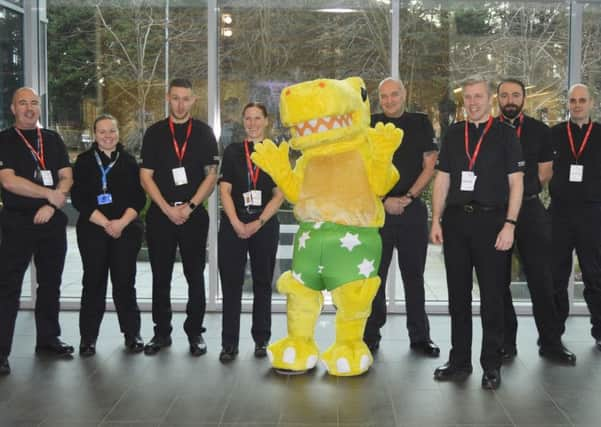Joining forces to keep children safe from abuse


Police in the Glasgow area are taking part in training to ensure they can reach more primary school children with the vital campaign.
PANTS, which stands for private are private, always remember your body belongs to you, no means no and talk about secrets.
Advertisement
Hide AdAdvertisement
Hide AdThe charity uses their friendly dinosaur Pantosaurus, to promote the key messages of PANTS and it’s used as a simple way to teach your child how to stay safe from abuse.
The police will be starting to go in to schools across Glasgow in the coming months.
NSPCC Scotland local campaigns manager Carla Malseed said: “This partnership with campus cops in Glasgow will be vital in terms of keeping more children safe from abuse. The police work hard in the community as this partnership will allow us to extend the reach of the campaign across the city, and will complement the work of the NSPCC’s schools service.
“The PANTS campaign is designed to speak to children about how to stay safe in an age appropriate and engaging way. PANTS teaches children that their body belongs to them, no means no and if something happens to upset them then they should tell someone.
Advertisement
Hide AdAdvertisement
Hide Ad“This is an exciting partnership and we hope to be able to build on it further in the future.”
Chief Inspector Michael Duddy, from Greater Glasgow Police Division added: “‘Keeping People Safe’ is always our primary message and this training is designed to increase pupil awareness and positive engagement with the police.
“I’m delighted that our partners from NSPCC have been involved at an early stage and their input and expertise has been crucial in the development of this fantastic training.”